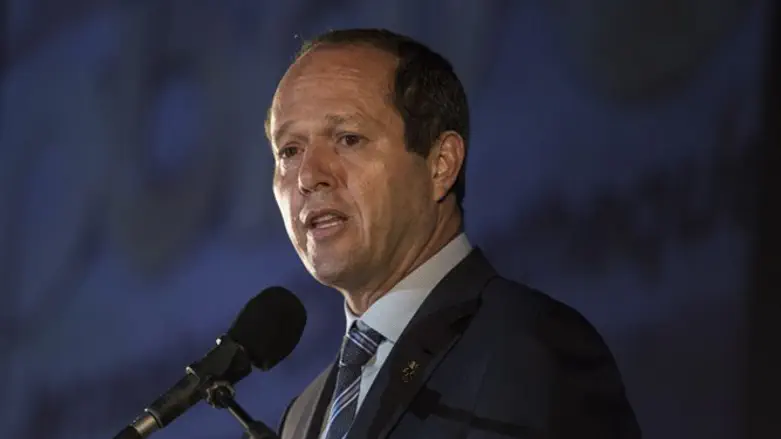
Former Jerusalem Mayor Nir Barkat called for sanctions against American companies boycotting Israel or industrial plants in Judea and Samaria, during a meeting with US President Donald Trump's Special Envoy to the Middle East, Jason Greenblatt.
Arutz Sheva spoke to Barkat about the meetings during the visit, about the proposed sanctions and their feasibility in American law, and about the political plan that he sees as a goal for the right-wing camp.
Barkat spoke about his meetings with senior government officials who expressed "our great challenge not to allow boycotts of settlement or Israel." "They understand the big challenge when AIRBNB decided to boycott us. We cannot allow it," he said.
Regarding the possibility of imposing sanctions on companies such as AIRBNB, Barkat said that on the face of it the company's blacklist of Jewish properties in Judea and Samaria seems like a violation of US law, and therefore government institutions cannot use the services of the company. This is beyond the fact that Israel can appeal to its supporters around the world to do the same, and not to use the services of a company that boycotts. In his opinion, Israel and its supporters have a large economic power that can be used as a kind of punitive force against its boycott.
Barkat also said that during his meetings with the administration, he presented a diplomatic plan, which he said sounded much more to officials than the failed plans of the two-state vision. The main points of Barkat's vision for the future of Judea and Samaria include the establishment of autonomy for the Arab towns and villages in Judea and Samaria, the application of Israeli law to Judea and Samaria, and full security control over the entire area, A reasonable and normal life in cooperation and coexistence.
All this, Barkat stressed, is in order to block any possibility of establishing a Palestinian Arab state on the western side of the Jordan River. "When I asked him if his interlocutors did not attack him for the very desire to remove the two-state solution from the political agenda, he says that he reminded American officials that alternatives exist," he said. "Various policies around the world can be used as well. One example is the legal reality in Puerto Rico, where the residents are granted civil status but do not allow them to participate in the election of the US president."
"I gave them a few examples of special arrangements and tell them that Judea and Samaria has no place for a Palestinian state. There is room for autonomy in which they will lead their lives, but there is no way that we will give up security in Judea and Samaria and there are practical models around the world. The Americans understand this, especially when we give them examples from the world."
And what about the rest of the area between the settlements that will accept Israeli sovereignty and the autonomy in the Arab communities? Barkat said there is no room for discussion at this stage. "We will not give up on the rest now, and now we have no one to talk to and we trust the prime minister who knew how to manage it correctly."
Regarding the IDF's control of the area, Barkat stressed that this is a critical issue in order to stop terror and to clarify Israel's position and power that will reach anyone who chooses to use terror against it.
Barkat was asked if he had heard from his interlocutors, perhaps from Jason Greenblat or others, about the political plan that Trump is planning to present. Barkat noted that while he can tell what he himself said and the way in which things were received with understanding and listening, he says that "they maintain ambiguity and even if they say, it is not customary to say what the other side says."